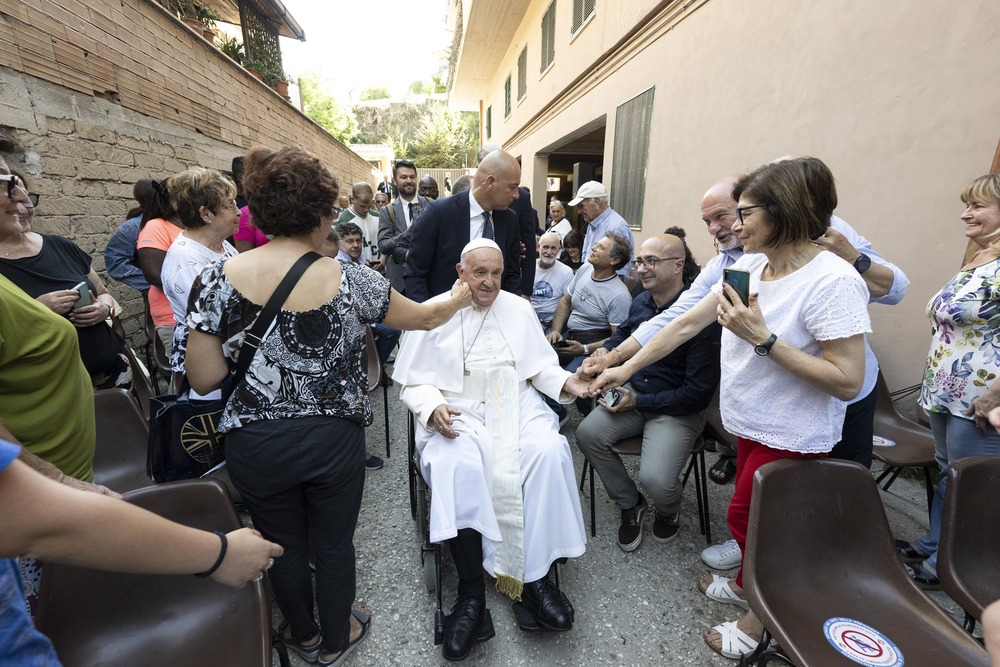
Pope Francis greets families outside the parking garages of a condominium on the outskirts of Rome where he met with families for an edition of his "School of Prayer" initiative June 6, 2024. (CNS/Vatican Media)
Today's businesses must focus their innovation in caring for the environment, Pope Francis told a group of leaders of major companies and banks.
"It is no longer enough merely to comply with the laws of states, which are proceeding too slowly: we need to innovate by anticipating the future, with courageous and forward-looking choices that can be imitated," he said.
"We are living in a time of serious environmental crisis that depends on many individuals and factors, among which are the economic and business choices of the past and present," he told the group during an audience at the Vatican June 15.
The group included 25 CEOs who are part of the Sustainable Markets Initiative. Established in 2020 by King Charles III, the initiative brings together leaders from different sectors to commit to concrete action that supports sustainable economic growth and caring for the environment.
The pope urged the leaders to pay attention to and critically discern the impact of their businesses so as to "fully exercise responsibility for the direct and indirect effects of your choices."
Advertisement
He gave them three tasks: to help care for the environment, the poor and young people.
"I urge you to place the environment and the earth at the center of your attention and responsibility," he said, adding that "the innovation of the entrepreneur nowadays must first and foremost be innovation in caring for our common home."
"Do not forget the poorest and the discarded," he said. Just as people seek to recycle materials and waste, "we have not yet learned — allow me to use the expression — to 'recycle' and not discard people and workers, especially the most vulnerable, to whom the culture of waste often applies."
He warned against a kind of "meritocracy" that is used to legitimize excluding the poor, "who are judged as undeserving, even to the point of viewing poverty itself as their fault."
"And let us not settle for merely a little philanthropy, that would be insufficient. The challenge is to include the poor in businesses, to make them resources for the benefit of all," he said.
"I dream of a world in which the discarded can become protagonists of change," he said, pointing to Jesus as someone who did just that.
Lastly, he said, young people are often among today's poor, in that they may lack resources, opportunities and a future.
He urged them to practice "corporate hospitality, which means generously welcoming young people even when they lack the required experience and skills, for every job is learned only by doing it."







